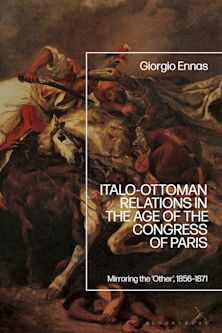Transnational Identities
Becoming European in the EU
Transnational Identities
Becoming European in the EU
This product is usually dispatched within 3 days
- Delivery and returns info
-
Free CA delivery on orders $40 or over
Description
This original work explores the increasingly important phenomenon of the formation of transnational identity. Considering the ongoing relevance of the European Union, the contributors ask a series of intriguing questions: Is a European identity possible? How are the various types of European identity formed and maintained? How are these identities linked to the process of European integration? Examining the psychological, institutional, and political mechanisms that encourage or impede identification with transnational groups, the book considers these theoretical questions in light of new evidence drawn from a rich body of primary research, including field experiments, in-depth interviews with elites, and public opinion surveys. Brought together for the first time, social psychologists, sociologists, political scientists, and ethnographers share their theoretical and methodological perspectives in tackling the common issues surrounding the emergence of 'European' as a political identity. Paying special attention to the role of the institutions of the EU, the authors investigate the impact of neo-functionalist strategies and find that the processes of identity formation are far more complicated than can be explained by material and institutional factors alone. The authors engage in a fruitful dialogue about how much a European identity exists and how much it matters as they delve into the sources of disagreement and their implications.
Table of Contents
Part 2 Part I: The Social Psychology of Identity Change
Chapter 3 Identity Change in the Context of the Growing Influence of European Union Institutions
Chapter 4 European Identity: A Social-psychological Perspective
Chapter 5 National Differences and European Plurality: Discrimination or Tolerance between European Countries
Part 6 Part II: Identity within the EU Institutions at the Elite Level
Chapter 7 The European Union and Its Institutions as "Identity Builders"
Chapter 8 National and Transnational Identities: European and Other Identities Constructed in Interviews with EU Officials
Chapter 9 EU Correspondents in Brussels: Between Europe and the Nation-State
Part 10 European Identity among Non-elites
Chapter 11 More than Nationals: How Identity Choice Matters in the New Europe
Chapter 12 Civic and Cultural Components of a European Identity: A Pilot Model of Measurement of Citizens' Levels of European Identity
Chapter 13 Europe Viewed from Below: Agents, Victims, and the Threat of the Other
Part 14 Part IV: Comparisons and Lessons
Chapter 15 European Institutions and Identity Change: What Have We Learned?
Product details
| Published | May 17 2004 |
|---|---|
| Format | Paperback |
| Edition | 1st |
| Extent | 320 |
| ISBN | 9780742530072 |
| Imprint | Rowman & Littlefield Publishers |
| Dimensions | 204 x 136 mm |
| Series | Governance in Europe Series |
| Publisher | Bloomsbury Publishing |



































